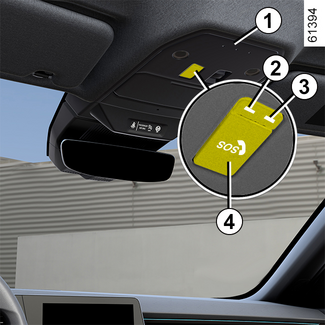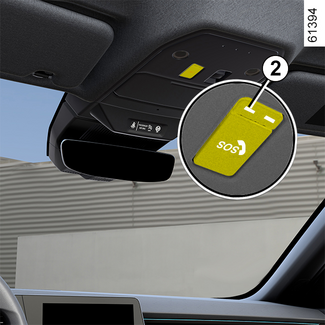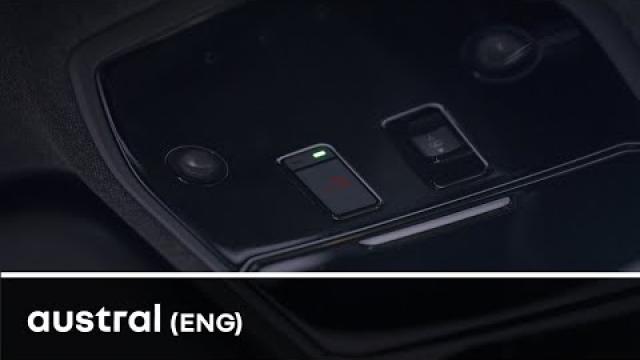Back to the list



Emergency call
Emergency call
If the vehicle is equipped, the emergency call function can be used to call the emergency
services (without charge) automatically or manually in the event of an accident or
illness, reducing the time it takes for the emergency services to arrive.
Note: the emergency call function is operational:
- in countries covered by the telematics services and infrastructure associated and compatible with the system;
- depending on the network coverage in the geographical region where the vehicle is being driven.
If you use the emergency call function to report an accident which you have witnessed,
this implies stopping where traffic conditions allow in order for the emergency services
to locate your vehicle and therefore the location of the reported accident.
In all cases, comply with local legislation.
Tip
Use the emergency call only in the event of an emergency you are involved in, if you
witness an accident or if you feel ill.

- 1.
- Microphone.
- 2.
- System operation/fault warning light:
- red: operation fault.
- 3.
- System operation warning light:
- green: operational (network available);
- off: non-operational (e.g. network unavailable);
- flashing green: call in progress.
- 4.
- Switch.
- 5.
- Speaker.

A call always takes place as follows:
- the call is initiated with the emergency services;
- data related to the incident (manufacturer's plate, time of the call, last locations, vehicle direction, etc.) is sent;
- voice communication takes place with the emergency services;
- if necessary, emergency assistance is called.
There are two emergency call modes:
- automatic mode;
- Manual mode.
Automatic mode
The emergency call starts automatically in the event of an accident that has triggered
activation of the protective equipment (seat belt pretensioners, airbag, etc.).
WARNING
In the event of an accident, if the location and traffic conditions permit, stay close
to the vehicle in order to be able answer the call centre quickly if necessary.
Manual mode

To make a call manually:
- briefly press the flap 4;
- guide it downwards;
- press button 6 "SOS".
If the button was pressed by mistake, it is possible to cancel the call by pressing
and holding the button 6 for around two seconds, before the call is connected to the call centre.
Once a call is established, only the call centre can end it.
Operating faults

In some cases, the emergency call may not work (e.g. low battery, etc.).
When the system detects an operating fault, the warning light 2 appears in red for over 30 minutes. Consult an approved dealer as soon as possible.
Tip
The system operates with a dedicated battery. The battery service life is approximately
four years (the warning light 2 appears in red to warn you).
Consult an approved dealer.
WARNING
To guarantee your safety and the proper operation of the system, any operation carried
out on the battery (removal, disconnection, etc.) must be carried out by a qualified
specialist.
Risk of serious burns or electric shocks.
You must respect the replacement intervals (without exceeding them) as stated in the
maintenance document.
The battery is a specific type. Please ensure it is replaced with the same type.
Call an approved dealer.
Tip
Without the emergency call feature, the system is not trackable and will not be under
constant surveillance. Data is automatically and constantly erased, and the system
stores only the last three positions of the vehicle.
According to local legislation, data is only sent in the event of an emergency call.
Data sent to the call centre is treated according to the personal data protection
laws applicable in the country where you are located. The system stores activity history
data for 13 hours only.
The vehicle owner has the right of access to their data. They can request that the
data be corrected, deleted or locked.
